27th Constitution Amendment Bill sails through National Assembly with two-thirds majority
Following approval of supplementary amendments, bill will now be sent back to Senate for final approval
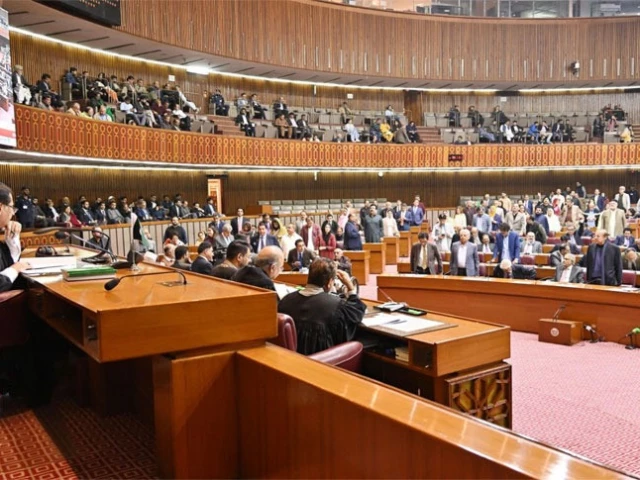
The National Assembly has approved the 27th Constitution Amendment Bill, 2025, introducing significant changes to Pakistan’s judicial and military frameworks, including the establishment of a Federal Constitutional Court with equal representation from all provinces.
Moved by Law Minister Azam Nazeer Tarar on Wednesday, the amendment comprises 59 clauses and was passed with 234 votes in favour, exceeding the required two-thirds majority of the House. Under the amendment, the FCC will hear cases concerning constitutional interpretation and related matters, with its permanent seat in Islamabad.
PM Shehbaz vows strong response to Pakistan’s enemies
Taking the floor, Prime Minister Shehbaz Sharif lauded the National Assembly for showing unity and solidarity during the passage of the 27th Constitutional Amendment, saying it strengthened the spirit of national cohesion and political harmony.
“I thank you for giving me the opportunity and for expressing such unity, which has promoted national cohesion and solidarity,” he said. “I congratulate this House on behalf of myself and all political leaders.”
Prime Minister Muhammad Shehbaz Sharif addresses session of the National Assembly. pic.twitter.com/fuBf1ktBlh
— Government of Pakistan (@GovtofPakistan) November 12, 2025
Earlier, the law minister concluded the debate on the amendment, describing constitutional reform as an “evolutionary process” undertaken with careful deliberation. He said the draft had been thoroughly reviewed and discussed with bar councils and bar associations across the country.
Tarar informed the House that the Senate’s joint committee had already endorsed the amendment with a two-thirds majority. He added that the changes sought to remove ambiguities concerning the office of the Chief Justice of Pakistan.
He further said that the amendment confirms that Justice Yahya Afridi will continue as the Chief Justice of Pakistan. Minor revisions have also been made to Article 6, which now includes a reference to a constitutional court.
Initial reports suggest changes to Article 6 clause 2A, which pertains to treason. Sources within the PPP told The Express Tribune that the name of the Federal Constitutional Court will also be included alongside the Supreme Court.
According to the proposed amendment, any act of treason mentioned in sub-clause one or two shall not be validated by any court, including the Federal Constitutional Court, the Supreme Court, or the High Courts.
PPP, govt meet
Earlier, Tarar met Bilawal to discuss the 27th Constitutional Amendment. The meeting was attended by Naveed Qamar, Sherry Rehman, and Murtaza Wahab. Attorney General of Pakistan Mansoor Awan was also present. Members of the PPP convened a parliamentary party meeting in the Parliament House today.
Tarar told the media, “We are discussing two or three constructive suggestions regarding the 27th Amendment. Voting on the Amendment will take place today. "If any changes have been made to the amendment approved by the Senate, it will be sent back for Senate approval to the extent of those changes."
After the meeting with the government, Bilawal consulted with his legal team. The consultative session took place in Bilawal's chamber, with Rehman and Farooq H Naik present. After the meeting concluded, Bilawal left for Aiwan-e-Sadr to consult President Asif Ali Zardari on the newly proposed amendments.
The federal cabinet convened for a meeting later in the afternoon, after which PML-N leadership left for the National Assembly.
National Assembly seats
The NA comprises of 336 members, but with 10 seats currently vacant, the total number of sitting members stands at 326. To pass a constitutional amendment, the ruling coalition requires the “golden figure” of 224 votes.
Hover over the graphic below to view the breakdown of seats in the National Assembly.
Currently, the ruling alliance holds the support of 237 members in the NA. The PML-N is the largest party in the coalition with 125 members, followed by the Muttahida Qaumi Movement with 22, the Pakistan Muslim League-Quaid with 5, the Istehkam-e-Pakistan Party with 4, and one member each from the Pakistan Muslim League-Zia and the Balochistan Awami Party. The government also enjoys the backing of four independent members.
However, the National Party, part of the ruling coalition, has decided not to vote in favour of the constitutional amendment. PPP, with 74 members, is the second-largest party within the coalition. Its support has been crucial in helping the federal government secure not only a simple majority but also a two-thirds majority when required.
On the other hand, the opposition benches comprise a total of 89 members. These include 75 independents, 10 members from the Jamiat Ulema-e-Islam (JUI-Pakistan), and one member each from the Sunni Ittehad Council (SIC), the Majlis Wahdat-e-Muslimeen (MWM), the Balochistan National Party-Mengal (BNP-M), and the Pashtunkhwa Milli Awami Party (PkMAP).
With the government coalition having enough numbers, the amendments' passage is soon set to become a reality. The 27th Constitutional Amendment Bill comprises 59 clauses and around 47–48 consequential amendments, with a vote to follow after debate.
Voices of protest
Judicial and political circles have begun protesting against the proposed 27th Amendment, with demonstrations spreading across the country.
Supreme Court judge Athar Minallah has called on Chief Justice Yahya Afridi to convene a judicial conference to have an open dialogue on threats to the independence of the judiciary. In the 7-page letter titled "Moment of Reckoning," Judge Minallah presents an overview of the chequered history of the top court, which he said has too often bowed before might and power instead of standing on the side of the people.
As the voices of protest reached Sindh, the Sindh government imposed Section 144 in the province. The Sindh Action Committee took to the streets in all districts of Sindh, joined by the legal fraternity, and blasted the 27th Amendment.
The Sindh United Party's Roshan Ali Burio addressed the demonstration at Hyderabad Press Club, stating that the legislation will "clip the wings of the judiciary by not allowing the bench to function independently".
"The freedom of expression and independence of the judiciary were snatched through the 26th amendment, and now the rulers want to go a step further," he alleged. The Hyderabad police tried to disperse the protesters and detained over a dozen of them as well, with charges of violating Section 144.
The protest reconvened, this time in the Sindh High Court Bar Association, where they threatened to block the Hyderabad bypass road if the apprehended protestors were not released.
Similar demonstrations took place in all the districts and towns in the province. The protesters converged outside the Larkana press club, chanting slogans against the incumbent government in Islamabad and the Pakistan Peoples Party (PPP) for spearheading the amendment.
Also read: Ex-CJP Jawwad S Khawaja challenges 27th Amendment in SC
Protests against the amendment are expected in Islamabad today, outside the courthouses in G11.
The Jamaat-e-Islami (JI) has launched a fierce attack on the government's sweeping constitutional reforms, accusing ministers of "distorting" the nation's founding document and concentrating power in the hands of the executive.
Hafiz Naeemur Rehman, the party's ameer, pledged to continue fighting to restore what he described as the constitution's original integrity after the 27th Constitutional Amendment passed through the Senate on Monday.
Speaking to members of the Lahore Bar Association at Aiwan-e-Adl, Rehman said his party had consistently defended the constitution throughout Pakistan's history, but warned that these changes would give the executive branch decisive control over judicial appointments and the distribution of power.
The amendment proposes four core changes in the Constitution.
Article 199 & 200
- The President has the power to transfer High Court judges between provinces on Judicial Commission's recommendation
- A judge refusing transfer shall be deemed retired
Article 248
- A new clause grants the President lifetime legal immunity
- If the President is elected back into office, immunity will be waived for the duration of their time in public office
Article 243
- Office of the Chairman Joint Chiefs of Staff Committee to be abolished from November 27, 2025.
- Strategic military authority to be concentrated under the Chief of the Defence Forces.
- Officers granted constitutional protection can only be removed through the Article 47 procedure.
- Presidential immunity under Article 248 extended to these officers.
Federal Constitutional Courts (New Chapter - Part VII)
- FCC to have original jurisdiction in Constitutional disputes between the government and fundamental rights enforcement cases
- Pending petitions or appeals in the Supreme Court or its constitutional benches under this jurisdiction are to be transferred to FCC.
- Abolishes suo motu powers of SC and deletes Articles 184, 186, and 191A.
Additional reporting by Hasnaat Malik



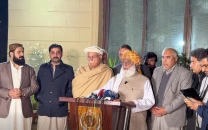
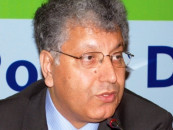
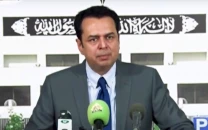
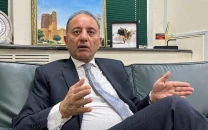












COMMENTS (1)
Comments are moderated and generally will be posted if they are on-topic and not abusive.
For more information, please see our Comments FAQ